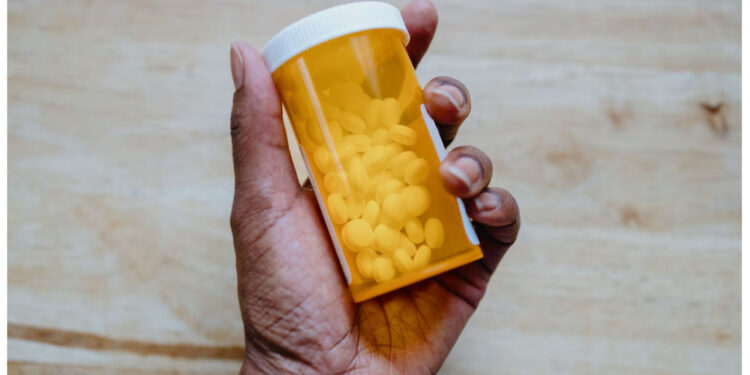Pharmacists are raising warning flags as drug shortages in the United States have reached an all-time high.
According to the American Society of Health-System Pharmacists (ASHP) and Utah Drug Information Service, there were 323 medication shortages that were active during the first three months of 2024. This number surpasses the previous record high of 320 shortages, which was reported in 2014.
The tracking of shortages by ASHP began in 2001.
“All drug classes are at risk of shortages,” stated Dr. Paul Abramowitz, CEO of ASHP. “Among the most concerning shortages are those of generic sterile injectable medications, including cancer chemotherapy drugs and emergency medications found in hospital crash carts and procedural areas.”
The American Cancer Society issued a warning last year, expressing concern over the resurgence of chemotherapy drug shortages. They highlighted that this could potentially have a devastating impact on patients.
Hospitals and clinics have faced the challenge of running out of medications, leaving doctors with the difficult task of rationing cancer drugs or prioritizing which patients receive them first.
Furthermore, Abramowitz emphasized that the scarcity of Attention-Deficit/Hyperactivity Disorder (ADHD) medications continues to be a concern for both doctors and patients across the country.
The shortage of ADHD prescription drug Adderall started in late 2022, primarily due to a delay from a manufacturer. The U.S. Food and Drug Administration has noted that as of early 2024, the shortage is now driven by increased demand.
According to an FDA official’s statement earlier this year, the FDA has various ways to help manufacturers increase supply during a shortage. This includes expediting the review of a supplement to add more active ingredients or additional capacity. However, specific actions taken by the FDA cannot be shared due to commercial confidential information.
According to a report by the Senate Homeland Security Committee in March 2023, the United States has been grappling with shortages of certain drugs for over a decade. These shortages have been further compounded by the COVID-19 pandemic. The report reveals that due to the lack of essential medications, patients are experiencing delays in receiving treatment, resorting to substitutions, or even going without treatment altogether.
During a hearing held by the House Ways and Means Committee earlier this year, a panel of expert witnesses, including practitioners, researchers, and pharmaceutical company executives, highlighted the detrimental impact of drug shortages on patients. They emphasized that these shortages can result in financial burdens for patients who are forced to seek alternative medications that may be more expensive.
The American Society of Health-System Pharmacists (ASHP) is actively collaborating with the federal government to provide guidance to various agencies within the Department of Health and Human Services (HHS) in response to shortages. In an effort to address this issue, ASHP recommends several actions that the federal government can take. These include implementing legislation that mandates manufacturers to be more transparent about any supply chain issues and promoting diversity within the supply chain. Through these initiatives, ASHP aims to alleviate the shortage and ensure a more resilient healthcare system.
The U.S. Department of Health & Human Services has proposed a measure that could penalize hospitals for not having enough resources to stockpile medications. ASHP, on the other hand, has expressed concerns about this proposal.
Abramowitz emphasized that there is still a lot of work to be done at the federal level in order to address the underlying issues causing drug shortages. He stated that ASHP will maintain regular engagement with policymakers as they work towards drafting and passing new legislation to tackle this problem. Additionally, ASHP will continue to strongly advocate for effective solutions that benefit their members.

